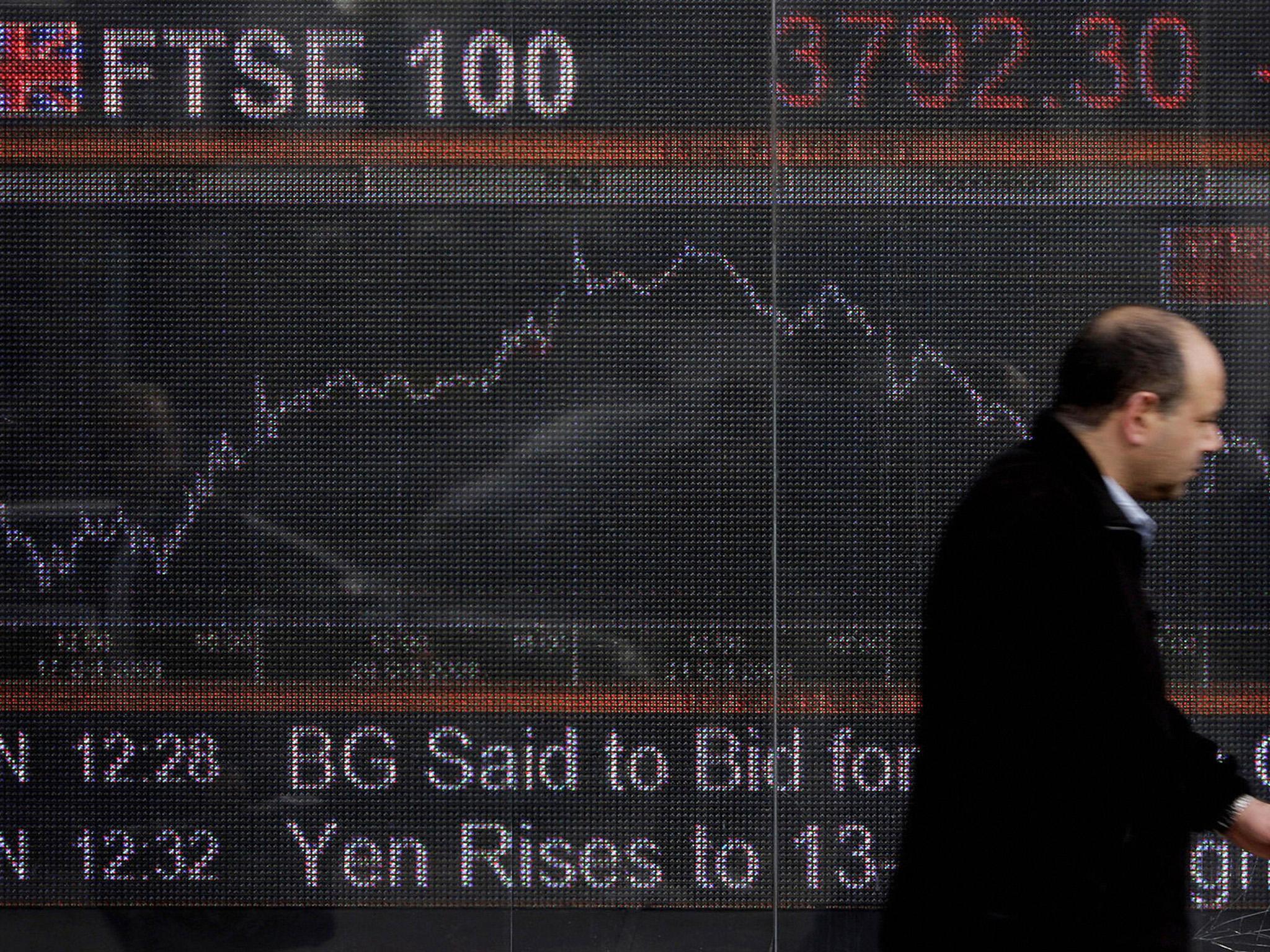How to stop coronavirus killing off your pension
Experts warn there’s now a ‘double digits hole’ in millions of savers’ pension plans

Your support helps us to tell the story
From reproductive rights to climate change to Big Tech, The Independent is on the ground when the story is developing. Whether it's investigating the financials of Elon Musk's pro-Trump PAC or producing our latest documentary, 'The A Word', which shines a light on the American women fighting for reproductive rights, we know how important it is to parse out the facts from the messaging.
At such a critical moment in US history, we need reporters on the ground. Your donation allows us to keep sending journalists to speak to both sides of the story.
The Independent is trusted by Americans across the entire political spectrum. And unlike many other quality news outlets, we choose not to lock Americans out of our reporting and analysis with paywalls. We believe quality journalism should be available to everyone, paid for by those who can afford it.
Your support makes all the difference.As millions of the UK’s workers have, understandably, been worried about how to pay the most immediate bills, the coronavirus outbreak has also been silently threatening to decimate the financial futures of millions more.
This week, as the new tax year rolls around with none of its usual fanfare, the biggest shake up in the pensions world marks its five-year anniversary.
And pensions freedoms – the ability for more people to access their retirement savings earlier and cheaper – are now facing the ultimate test as they expose those in retirement more directly to stock market risk.
“While the reforms have been popular, the volatility we’ve seen over the past few weeks has put the freedoms right back under the microscope,” says Emma Byron, managing director of Legal & General Retail Retirement.
“As markets were shaken by the rapid spread of coronavirus, pension freedoms are, for the first time, being tested in more challenging conditions.
The rules
Just under a million people turn 55 each year, at which point they have access to investments earmarked for old age. They no longer have to buy an annuity with their defined contribution pension and the drawdown, or cashing in of funds, which once carried a terrifying 55 per cent tax charge now carries only marginal income tax rates.
Starting in 2015, once you hit 55 and, alongside the familiar 25 per cent tax-free lump sum choice, you can now decide to leave everything invested, take some of the cash in chunks, an adjustable income or “flexi-access drawdown”, a guaranteed income known as an annuity, cash in the lot or go with a combination of these actions.
It can be a minefield and the government-backed free advice service Pensionwise can help talk you through your choices as well as the potential implications and impact they bring with them.
Research by AJ Bell has found savers have withdrawn around £33bn since the new freedoms were introduced, taking around 4.4 per cent of the value of all private pension pots each year. That’s around £6,700 of the average £152,000 private pension pot.
The threat
The greatest concern now is for those people who choose to stay invested in a roller coaster market while further depleting their funds because they are also taking an income through drawdown.
“Although it is difficult to judge the sustainability of withdrawals without knowing people’s individual circumstances and overall wealth, a market characterised by people taking an income of between 4 and 5 per cent who tend to have multiple sources of income may appear of little concern – particularly during a period where markets have risen at a healthy rate,” says Tom Selby, senior analyst at AJ Bell.
“However, the coronavirus sell-off has changed everything, ripping a double-digit hole in millions of savers pension plans. While those who are building a retirement pot should have decades for their funds to (hopefully) recover value, people drawing an income already will likely have to adjust their spending expectations.”
It is a particular problem for those in the early years of retirement who took significant withdrawals from their fund just as the current crisis hit. This combination of big withdrawals and negative investment performance – often referred to as “pound-cost ravaging” – can wreak havoc with people’s retirement plans.
“While it may be tempting for some to plough on regardless, such an approach will leave you at significant risk of running out of money,” Selby adds.
Those in this situation are being urged to review their spending and reassess their monthly budget in a bid to reduce the amount they need to withdraw from their pension, giving their pot time to recover.
On the brink
“Thousands of people intending to retire this year will now be wondering what their options are,” Byron adds. “The vast majority will have pension savings in default lifestyle funds, which are less exposed to recent market events. While they may have seen smaller reductions in their pension pot, any fall can understandably feel significant.”
Though the obvious decision is to defer retirement, that isn’t a realistic option for all. But the choices available to the over-55s could help tailor their circumstances and savings pot to the current economic climate.
“With the future currently so hard to predict, it may be appropriate to ensure your basic necessities and expenditure is covered through fixed income sources such as annuities, state pension and any defined benefit pension,” adds Byron, though she acknowledges the latest cut in interest rates has had a knock-on effect on annuity rates.
Contact Pensionwise for more information about your retirement options in light of your individual circumstances and savings pot as well as current market conditions.
Join our commenting forum
Join thought-provoking conversations, follow other Independent readers and see their replies
Comments